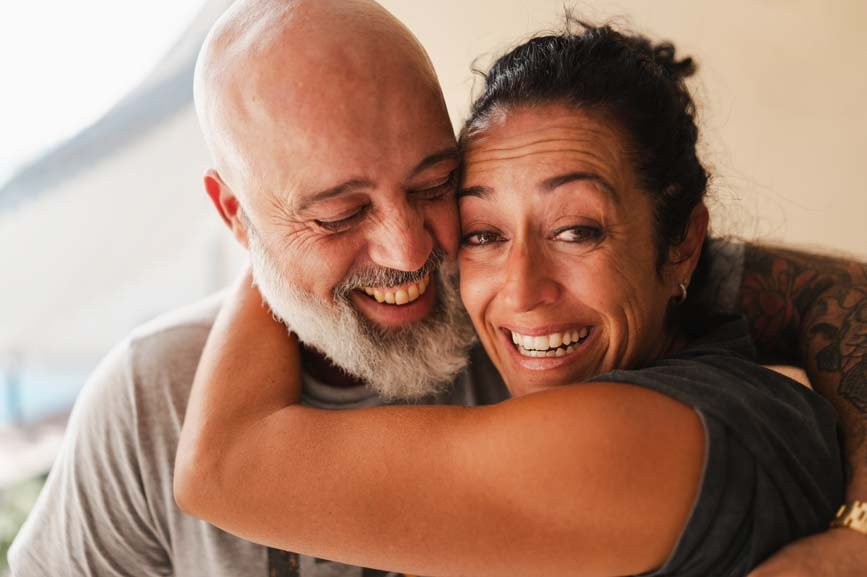Why ‘We Never Fight’ Could Actually Be a Problem in Your Relationship
Many couples proudly declare, "We never fight!" On the surface, this might sound ideal—who wouldn’t want a peaceful, conflict-free relationship? Yet, as a therapist who specializes in working with couples, I often get concerned when I hear this. Ironically, the absence of conflict can signal deeper issues in the relationship, like a lack of authenticity, vulnerability, and emotional intimacy.
Let's explore why never fighting might actually be problematic—and what healthy conflict can look like.
The Myth of a Conflict-Free Relationship
Conflict often gets a bad rap. We associate it with hostility, misunderstanding, and pain. But here’s an important truth: All meaningful relationships involve conflict at some point. Why? Because you’re two distinct individuals with different experiences, beliefs, desires, and emotions. Healthy conflict simply means you're both being honest enough to reveal these differences, which naturally leads to disagreements.
If there’s never any conflict, it often means one or both partners are suppressing their true feelings, needs, or opinions to avoid rocking the boat. Over time, this can quietly erode emotional safety and intimacy, as neither partner is truly seen or understood.
The Hidden Costs of Avoiding Conflict
When couples avoid conflict, they often believe they’re maintaining peace. However, avoiding conflict usually means avoiding authenticity. You may be consciously or subconsciously hiding your true feelings, concerns, or desires from your partner. This leads to:
Resentment building silently: Small frustrations accumulate beneath the surface because they're never addressed openly.
Reduced emotional intimacy: Authentic conversations, even if difficult, create deep emotional bonds. Avoidance limits how well you truly know each other.
Diminished trust: Authenticity and vulnerability build trust. Without openness, partners often feel disconnected or misunderstood.
For more about why authenticity and healthy communication matter deeply in relationships, see my previous post: "Healthy Communication in Couples: Why Asking for What You Want is a Gift to Your Partner".
Healthy Conflict as a Path to Intimacy
Healthy conflict isn't aggressive or destructive. Instead, it involves being honest, authentic, and vulnerable about your emotions, thoughts, and needs—even when those conversations are uncomfortable. It looks like:
Expressing your true feelings clearly and respectfully.
Listening openly to your partner’s perspective, even if it differs greatly from yours.
Working together to find solutions or compromises that respect both of your needs.
This kind of constructive conflict deepens your emotional bond. It helps you better understand each other’s emotional worlds and increases empathy, closeness, and resilience as a couple.
How to Engage in Healthy Conflict
If you've avoided conflict, here are ways to start engaging constructively:
Acknowledge your fear of conflict: If conflict makes you uncomfortable, start by acknowledging that discomfort. It’s okay to feel uneasy—but avoiding it only increases emotional distance.
Practice vulnerability: Begin small. Share feelings or opinions gently and authentically. Vulnerability builds emotional intimacy and trust. For more guidance, see my post about When Avoiding Vulnerability Leads to Miscommunication.
Learn to self-calm during tough conversations: It’s normal for emotions to rise during conflict. Learning how to calm yourself helps maintain respectful dialogue. For specific techniques, see my post on "How to Self-Calm After Being Triggered".
Create safety for honest communication: Establish ground rules together—like active listening, not interrupting, and taking breaks if needed—to ensure both partners feel safe sharing authentically.
Embracing Conflict for a Stronger Connection
If you’ve been proud of your conflict-free relationship, this perspective shift might feel challenging at first. But healthy conflict is actually a powerful opportunity for growth, emotional closeness, and lasting intimacy. It shows you both trust each other enough to reveal your true selves—even the messy, uncomfortable parts. That level of trust and authenticity is foundational for deep emotional bonds.
If navigating conflict feels difficult, know you’re not alone—many couples benefit from professional support. I’m here to help you and your partner embrace healthy conflict as a path to deeper intimacy and connection. Reach out by phone at 612-230-7171, or through my contact page, or schedule a consultation online.
Together, we can transform conflict from something scary into a tool that strengthens your relationship, building lasting trust, understanding, and closeness.



